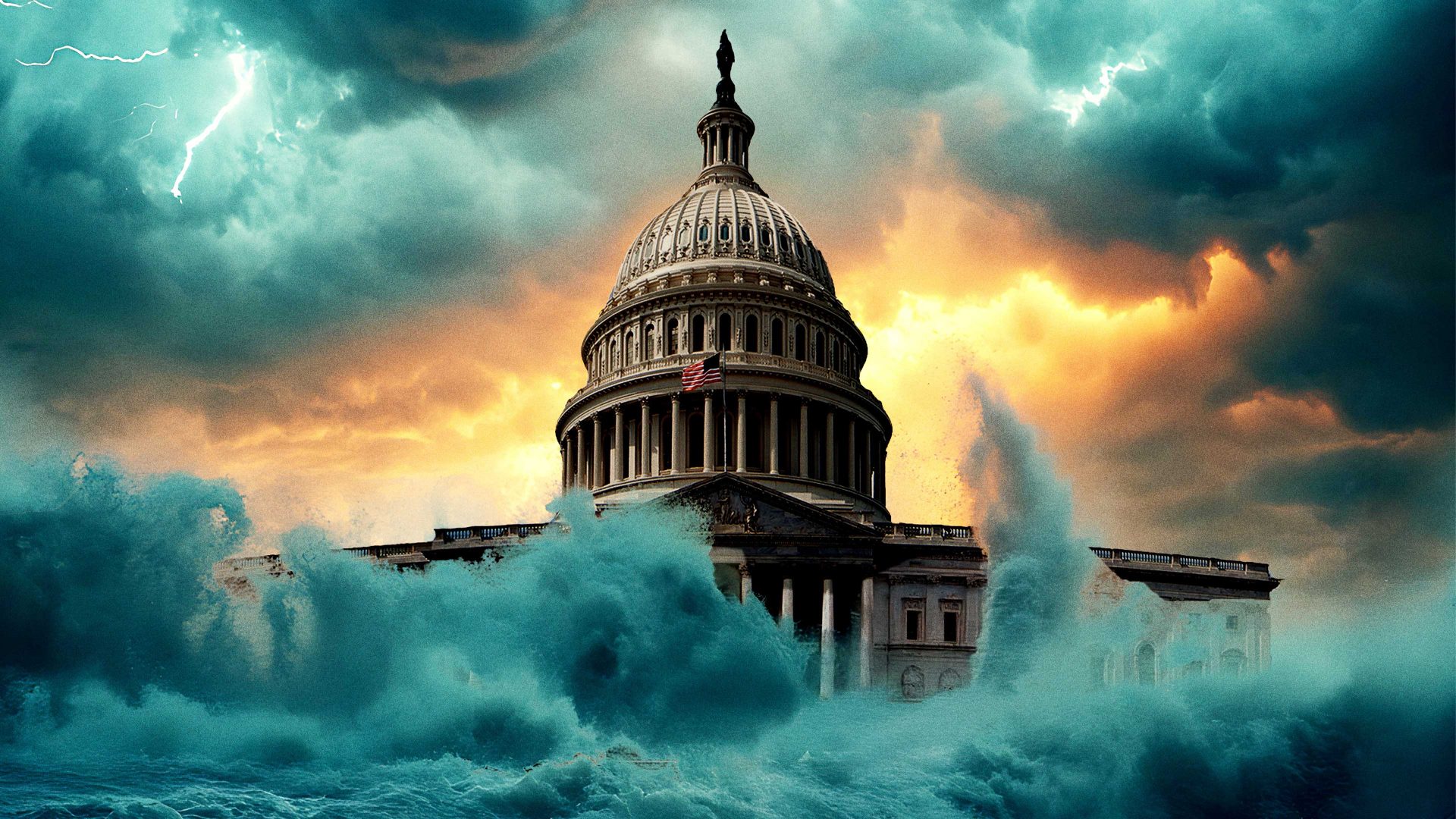America is a relatively young nation with much to trouble its conscience.
The USA’s prosperity came at the cost of all but wiping out Native American societies. Its economy was based on slavery, and pervasive racism continued long after the civil war that ended the practice. The US has the Klan, Vietnam, Korea, the CIA’s cold war excesses, Iraq and more to reckon on its balance sheet.
That darkness has, since before America was even a nation, been countered by a relentless optimism that became the very core of the country’s identity. Americans have hailed back to the biblical reference made aboard the ship Arbella in 1630 – shortly before the first colony in Massachusetts was established – of creating “the city upon the hill”.
America’s Declaration of Independence was signed by slaveholders and yet referred to the “self-evident” truths of human equality, while Lincoln spoke of “a new birth of freedom” for America out of the strife. Contemporary presidents from Kennedy (“Ask not…”) to Reagan (“it’s morning again in America”) to Barack Obama (“the audacity of hope”) have played to that spirit. Americans have always been aware their country is flawed, often deeply so, but have been relentlessly willing to believe it can be better tomorrow than it was yesterday.
Whoever wins the election, that America is dead. There is just no meaningful faction in American political life that still sincerely believes it, or that genuinely tries to live up to the ideal of America, rather than just grapple with its reality. At best, some are still trying to fight off the extremism of Donald Trump and the modern Republican Party – but they are doing so with the arguments of maintaining the status quo, rather than anything more elevated than the floor.
America has become the nihilist nation: its people have variously either embraced the chaos or else have become so beaten down and exhausted that they simply accept it.
This is most obvious when looking at the Republican Party and its voters. Politicians who were openly appalled at Donald Trump’s antics in 2016 – which look downright quaint compared with the Trump of 2024 – now embrace him, seemingly wholeheartedly.
Those who last found their spines to denounce Trump’s attempted insurrection, which though bungled was nonetheless a sincere effort to overturn the result of a democratic election, have found no use for those bones since.
Trump’s attempt to reverse the outcome of the 2020 election is now dispassionately discussed like any other election issue, as if it were a tax plan or education policy – are the Democrats right to focus on it? How does insurrection play in the key suburban districts of Pennsylvania?
No reasonable person can argue that Republican voters don’t know who Donald Trump is. He’s a court-adjudicated rapist who has been ordered to pay millions of dollars for defaming one of his victims. He’s been convicted of 34 financial offences related to his illegal efforts to cover up scandals in previous elections. His university defrauded its students, his casinos went bankrupt, screwing their workers.
He is the “grab ’em by the pussy” former president with the backing of almost every evangelical church in America. He has said he wants generals like those of Adolf Hitler – not realising that Hitler’s generals were neither loyal (they tried to assassinate him three times) nor competent (they failed in those assassinations, and Germany lost the second world war).
His platform involves tanking the American economy and launching dawn raids to separate millions of American families. His supposedly Christian voter base is fine with all of that.
America’s ultra-rich elite has looked at the state of the nation and reached similarly cynical conclusions: a group of billionaires – mostly notably Elon Musk (of whom more later) – have decided to go all-out in favour of Trump, while most of the rest have decided to sit on the sidelines and just go along with whoever wins.
Few would expect the boss of, say, Boeing to come out and express strong political opinions in the run-off, but the billionaires are taking that further, using their media ownership to either stymie criticism of Trump or else to outright support him.
The owner of the LA Times, Patrick Soon-Shiong (a billionaire friend of Musk), banned his newspaper’s editors from making an endorsement in the 2024 presidential race. At the time of writing, Jeff Bezos’s Washington Post was said to be having tensions over the same issue. Shortly after Rupert Murdoch met with Musk, his New York Post made a front-page endorsement of Trump.
Social media, though, is much more significant than newspapers in our modern era. In 2020, Republican lawmakers held hearing after hearing, acting relentlessly outraged at efforts by Facebook and Twitter to restrict the spread of false information – or foreign influence operations – on their networks.
The picture is very different in 2024. Meta, which owns Facebook, Instagram, Threads and WhatsApp, is actively suppressing all political content on its networks, to pretty much no outcry from anyone. TikTok is owned by a Chinese entity, and despite an order for it to find a US buyer or be banned, its influence on the US election is going ignored.
And Twitter is now all out for Trump, with Musk “buying” advertising on his own site and using his own account to relentlessly promote Trump. The sudden and hypocritical Republican silence on the issue is grimly predictable, but the Democratic silence is perhaps even more notable. This is just how politics works now. It has been accepted.
It’s impossible to say whether this acceptance of how America is now is caused by demoralisation, disassociation, exhaustion or something else, but it also doesn’t really matter very much. What matters is it extends across American society.
More older black and Hispanic voters than ever before are looking to give voting Republican a go this time than in any other election in recent decades, even as it runs on an often overtly racist and anti-immigration platform – because they believe the economy will be better under Trump and don’t believe things would be that different either way otherwise.
Voters on the left flank of the Democratic Party are happy to stay at home – or in the case of some Arab-Americans in Michigan, furious with Joe Biden over Israel/Gaza, to vote for Trump themselves – rather than help Kamala Harris keep the Republicans out. Some simply see no difference between the two parties, while others don’t see enough reason to opt for the “lesser of two evils”.
The abnormal has become normal. This is just another election. The Washington Post has scrubbed “Democracy Dies In Darkness” from its masthead, the NYT saves Trump’s Nazi references for paragraph seven of its top stories, and analysis segments wonder if Democrats should focus on insurrection or the jobs numbers.
No one now believes in, or is listening to, the story that America has been telling itself for the last two centuries. The dream is dead and the nightmare could be just beginning – not least because none of this goes away if Harris wins the election.
Harris, should she win, might find that she has secured one of the worst prizes in the history of contests. As president, it would be her job to keep the lid on the pressure cooker that is America and hope that it doesn’t explode on her watch.
She would have – in the very best scenario – tiny majorities in Congress that would make passing meaningful change impossible, and might face a hostile House or Senate from the get-go. The Supreme Court majority is implacably against her.
More than that, her campaign doesn’t offer any antidote to America’s new nihilism, nor a route out of it. Much as she tries to claim otherwise, her platform is continuity Biden, and the last four years have done nothing to lessen the malaise eating at America. Biden has presided over a good economy, passed major infrastructure spending, has record low unemployment, economic growth European nations would kill for, and good stock market performance.
By any standard presidential benchmark, Biden has had a fantastic run – and none of it matters politically. Almost no one believes the economy is good or that crime is down (though it is), and so on.
Simply doing the job well doesn’t work any more. It is no longer the economy, stupid, and the Democrats have no plan to deal with that.
Harris is pitching that she’ll appoint Republicans to her administration and is campaigning with Liz Cheney as a bid to secure just enough votes to hold Trump at bay. She doesn’t have a plan for afterwards, or at least not one she has shared.
Needless to say, a Trump win would rapidly accelerate the rise of American nihilism, but in a small way could almost be a relief. At least in that scenario, the situation is undeniable: it has happened, the flames and the smoke are visible, and so the attempts to make anyone notice the blaring alarm are finally redundant.
The question is whether America really works as a nation when it is shorn of its idealism. It is certainly a hard country to like without it – America is a country that lets its veterans starve on the streets, that accepts rocketing levels of drug addiction and death, that will force those in poverty to fend for themselves without welfare or healthcare. Gun violence that would spark national reckonings in any other western country is routine.
Without the myth of American self-improvement, without its sense of optimism, we are left only with the reality of the USA as it is today, and that’s a grim sight indeed.
Perhaps there is hope in some unregarded corner, the flame of hope might still flicker in a hearth somewhere – but it has no obvious torchbearer.
Should the American electorate reject Trump a second time, someone needs to reignite that flame, or worse than him will follow, and it will not take long.




